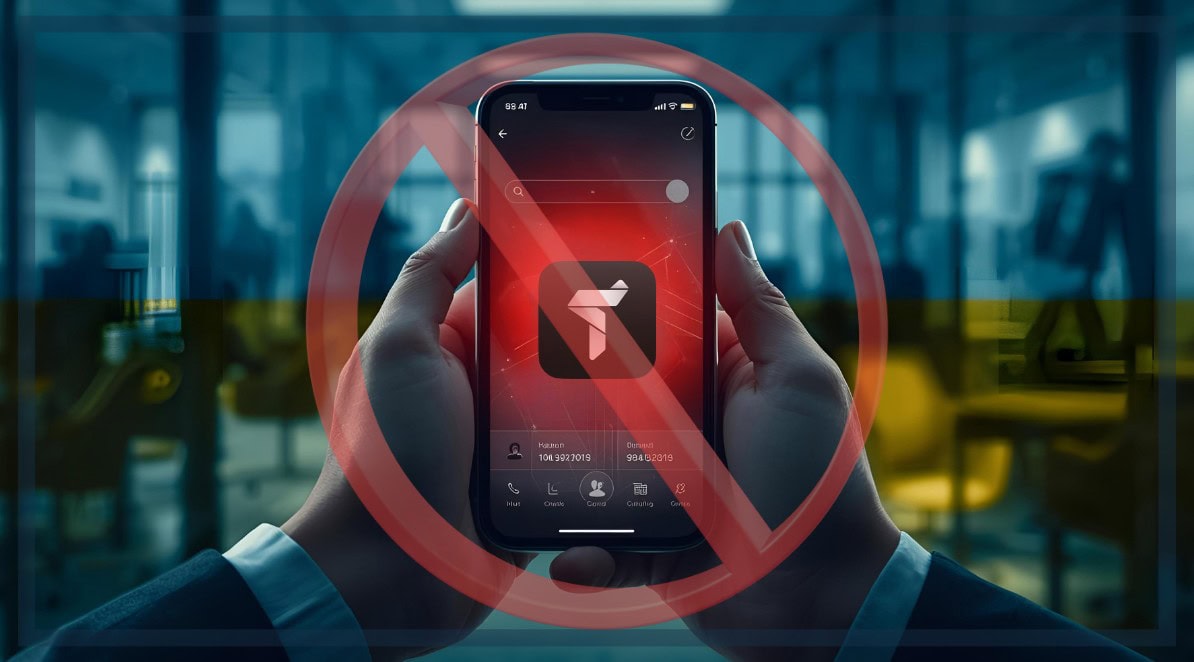Blockchain sleuth ZachXBT has dropped a bombshell in the crypto world with the leak of a “price sheet” revealing wallet addresses and promotional fees paid to over 160 crypto influencers, most of whom failed to disclose their posts as advertisements.
NEW LEAK: Price sheet of 200+ crypto influencers and their wallet addresses from a project they were recently contacted by to promote.
— ZachXBT (@zachxbt) September 1, 2025
From 160+ accounts who accepted the deal I only saw <5 accounts actually disclose the promotional posts as an advertisement. pic.twitter.com/Kph9dUvDxB
The influencers were grouped into five tiers, ranging from $50 a post to $60,000, including their payment addresses on the Solana chain. Out of about 160, only five labeled their posts as advertisements. The rest passed off ads as genuine endorsements.
Why It Matters
Undisclosed paid promotions are illegal in many jurisdictions. Yet in practice, penalties are rare and enforcement inconsistent. Law enforcement has its hands full trying to chase down crypto fraud, a difficulty which decentralization exacerbates.
The Trump administration’s perceived slow-walk enforcement against fraud and market manipulation has only widened the gap. This vacuum has left space for private blockchain investigators like ZachXBT to step in.
Many of ZachXBT’s posts involve threads of evidence that provide a blueprint for prosecutors. Whether regulators will follow the trail is unclear.
The Gunshy FTC
In the US, the Federal Trade Commission (FTC) is responsible for enforcement on all paid partnerships and sponsored content on social platforms. For the FTC, both the influencers and the advertiser are responsible for ensuring transparency.
Violations can run up to $50,120 per violation, according to a blogpost by the FTC on March 3, 2025. It sounds intimidating, but in practice the FTC has only brought three measely cases against companies who have appointed influencers since 2017. The fine for these companies went up from zero in 2017 to $2.5 million in 2019 and back to $1 million in 2020. Influencers can only be fined up to $50,120.
Most social media influencers can probably rest easy. The spectre of FTC enforcement is more bark than bite.
To Be, or Not To Be, a Security
The Securities & Exchange Commission (SEC) can bring cases against influence, too, but only when “touting” securities without revealing compensation. That depends on a long-running turf war between the SEC and the Commodity Futures Trading Commission (CFTC) over whether crypto is a security or not. Disruption Banking reported on the turf war here and Gensler’s insistence on the issue here.
Under former chair Gary Gensler, the SEC was aggressive, especially on the question whether digital assets are defined as securities. Gensler insisted that most cryptocurrencies were securities unless they were fully decentralized and not associated with any person or group.
While Gensler’s SEC brought charges against several high-profile influencers who concealed the fact that they were being paid, no influencers have been charged in 2025.
In March of 2024, the SEC charged Justin Sun of Tron and several celebrity influencers for illegally touting TRX. Sun, of whom Disruption Banking has regaled readers here and here, has since watched his legal problems disappear courtesy of Paul Atkins, probably. The celebrities, however, among them Lindsay Lohan and Jake Paul, paid $400,000 in fines, while not admitting to or denying the SEC charges.
While Kardashian was paid $250,000 by EthereumMax to publish a post on her Instagram account, she settled with the SEC for $1.26 million and agreed not to promote crypto for three years.
Not a single Democrat voted for the current SEC chair Paul Atkins because of his industry ties. Atkins declares that he’s pro-crypto and previously worked as a crypto adviser.
The Price of Influence
Who knew there was so much money in pretty people telling their friends about products they just learned about. Among the impressive payouts to influence, one engagement farmer received $60,000 for a single post.
Seems they do small giveaway posts to farm engagement from people in developing countries
— ZachXBT (@zachxbt) September 1, 2025
In response to online criticism, the influencer @Attity_, explained that the money was for payment for his work on the platform over the course of two weeks, not just for a single post.
Expounding on the claim, the influencer accused the project of trying to control him, in the midst of acknowledging that he had failed to mention his compensation.
The truth
— Atitty (@Atitty_) September 1, 2025
I was hired to work on this platform and help market it, which is why I was payed $60k
I wasn’t paid $60k for one post, I was paid $60k to help push the platform
After they paid they then asked if I can post about the platform which I did (a post about how I was… pic.twitter.com/TMgMAUJDdv
ZachXBT’s Track Record
This is just the latest in a long string of exposés courtesy of ZachXBT, a self-proclaimed “scam survivor turned 2D investigator.” One year ago, he made headlines around the world for a cinematic and bizarre case involving high-rolling NYC teenage scammers whose prodigious heist caused their parents to get abducted by masked gunmen. ZachXBT’s efforts led to “multiple arrests and millions frozen,” as his pinned tweet accurately boasts.
Just in the last month, he traced the proceeds of a social engineering scam worth $91M worth of BTC to deposits in Wasabi and disclosed the compromising of the computer of a North Korean state hacker who operated +30 fake identities.
Murky Consequences
Despite the scale of his findings, the legal consequences of ZachXBT’s info-dumps remain murky. With the FTC timid, the SEC distracted, and enforcement slowing at the federal level, it’s unclear whether regulators will pick up where he leaves off.
In the court of public opinion, especially on social media, transparency lapses are trending poorly. Whether or not the legal system responds, influencers are likely to face scrutiny from investors and ridicule online.
People disapprove of influencers not revealing they are being paid by sponsors, but most people know that social media is not where one should look for reliable investment advice.
The highest upvoted comment on the CryptoCurrency subreddit showed little sympathy for people who take investment advice from influencers, “I mean, that’s just common sense tbh. If an influencer mentions something about a coin, assume they are paid to do so.”
It’s a reminder that while regulators may hesitate, retail investors are learning to take influencer content with a grain of salt.
Looking Ahead
The SEC, under Atkins, appears more interested in appeasing the industry than policing it. And the CFTC remains preoccupied with its mandate over derivatives.
That leaves an uncomfortable vacuum. For now, freelance investigators like ZachXBT are left to do the work that regulators won’t. Whether their findings spur meaningful legal action—or simply generate headlines—remains to be seen.
Going forward, the burden will fall entirely on investors themselves to separate signal from shill.
Author: Tim Tolka, Senior Reporter
#Crypto #Blockchain #DigitalAssets #DeFi
The editorial team at #DisruptionBanking has taken all precautions to ensure that no persons or organizations have been adversely affected or offered any sort of financial advice in this article. This article is most definitely not financial advice.
See Also:
How Paul Atkins as SEC Chairman Might Transform Crypto’s Legal Landscape | Disruption Banking
Retail Investors – Easy Pickings? | Disruption Banking
Why the Matt Doman Crypto Promoting is Over | Disruption Banking















2 Responses
President Trump’s Hand Picked SEC Chair Paul Atkins, proves the point in this 1st article that Pensioners are being setup to FAIL!!!
Trump’s 401K Executive Order allowing Pensioners into Crypto Investments needs the same Safe Guards protecting the 43 Trillion Dollar Pension Fund in Place that Paul Atkins is being told by Trump to change , like releasing fiduciaries from Liability for advising too risky of Investments !!!!!
This is why we need to Challenge Trump’s Executive Order and demand that 401K pensioners have a say in how Rules are re-written at the SEC protecting Pensioners !!!!!!
https://www.disruptionbanking.com/2025/09/12/crypto-sleuth-zachxbt-uncovers-undisclosed-payouts-to-over-200-influencers/?kuid=782cc76c-678a-43b6-aedd-89bf2a47f71c-1758038344&kref=https%3A%2F%2Fwww.disruptionbanking.com%2F
https://www.disruptionbanking.com/2025/04/02/how-paul-atkins-as-sec-chairman-might-transform-cryptos-legal-landscape/
President Trump’s 401K Pensioners investing in Bitcoin/Crypto Executive Order needs an Injunction filed to Demand more Transparency in how SEC plans on Re-writing the Rules that is designed to Release Fiduciaries from Liability , and Pensioners right to be Informed as to the various conflicts of Interest surrounding Trump’s Investments in Crypto and how he and many others that are Invested in Crypto “Ahead” of the approval of the 401K Executive Order, will Reap hundreds of Billions of Dollars off the 43 Trillion Dollar Pension Fund as it rolls into Crypto/Stablecoin investments !!!!! Notice how Trump statement in this EO says they want to Roll Back Liability “LAWSUITS” for fiduciaries,
https://www.whitehouse.gov/presidential-actions/2025/08/democratizing-access-to-alternative-assets-for-401k-investors/
So what we have with the Effort to Re-write SEC rules regarding safeguards over Investing in CRYPTO is we are going from ” Unambiguous ” Rules to ” Ambiguous ” Rules !!!!!!!!!! So, Pensioners need to have a say in the Re-writing of the rules !!!!!
US Department of Labor rescinds 2022 guidance on Cryptocurrency in 401(k) Plans
https://www.dol.gov/newsroom/releases/ebsa/ebsa20250528
Following an August 7, 2025 executive order, the Department of Labor (DOL) and other federal agencies were directed to facilitate access to alternative investments, including crypto, in 401(k) retirement plans. This follows the DOL’s May 2025 rescission of prior guidance that had warned fiduciaries to exercise “extreme care” with cryptocurrency.
However, the executive order does not release fiduciaries from liability under the Employee Retirement Income Security Act (ERISA). It directs the DOL to reconsider guidance and consider creating potential “safe harbor” regulations, but fiduciaries still maintain a duty to act prudently and in the sole interest of plan participants.